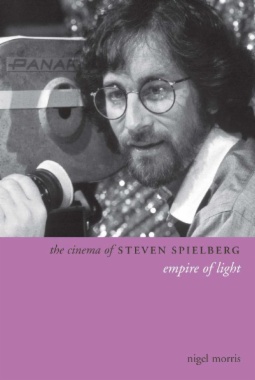Cinema's most successful director is a commercial and cultural force demanding serious consideration. Not just triumphant marketing, this international popularity is partly a function of the movies themselves. Polarised critical attitudes largely overlook this, and evidence either unquestioning adulation or vilificationoften vitriolicfor epitomising contemporary Hollywood. Detailed textual analyses reveal that alongside conventional commercial appeal, Spielberg's movies function consistently as a self-reflexive commentary on cinema. Rather than straightforwardly consumed realism or fantasy, they invite divergent readings and self-conscious spectatorship which contradict assumptions about their ideological tendencies. Exercising powerful emotional appeal, their ambiguities are profitably advantageous in maximising audiences and generating media attention.
- Contents
- Acknoledgements
- Introduction: The Critical Context
- 1. Close Encounters of the Third Kind: tripping the light fantastic
- 2. Duel: the descent of Mann
- 3. The Sugarland Express: a light comedy?
- 4. Jaws: searching the depths
- 5. 1941: war on Hollywood
- 6. Raiders of the Lost Ark: lights, camera, action
- 7. E.T. The Extra-Terrestrial: turn on your love light
- 8. Twilight Zone: The Movie: magic lantern man overshadowed
- 9. Indiana Jones and the Temple of Doom: anything goes
- 10. The Color Purple: sisters and brothers
- 11. Empire of the Sun: shanghai showmanship
- 12. Indiana Jones and the Last Crusade: cut to the chase
- 13. Always: light my fire
- 14. Hook: an awfully big Pan(a)vision adventure
- 15. Jurassic Park: another monster hit
- 16. Schindler's List: darkness visible
- 17. The Lost World: Jurassic Park: more digital manipulation
- 18. Amistad: black and white in color
- 19. Saving Private Ryan: Hollywood on war
- 20. A.I. Artificial Intelligence: eyes wide open
- 21. Minority Report: through a glass, darkly
- 22. Catch Me If You Can: captured on celluloid
- 23. The Terminal: all that jazz
- 24. War of the Worlds: rays in the mirror
- 25. Munich: bitter fruit on the olive branch
- 26. Audiences, subjectivity and pleasure
- Bibliography
- Index

